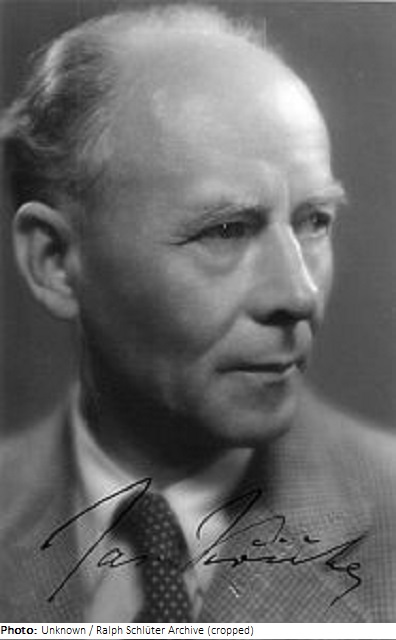Czechoslovakian composer Jaroslav Křička won the bronze medal in the 1936 Art Competitions at the Berlin Olympics in in the category Compositions for Orchestra, with his op. 63 Horácká suite (Mountain Suite). The suite was composed in 1935 and had its world premiere later that year in Copenhagen. The work consisted of four movements, of which the first three reflect the Moravian landscape and folklore, and only final movement is actually devoted to sports. The programmatic titles of the movements were Greeting, Pastorale, Folk Song and Ski Final. The autograph of the score for symphony orchestra is kept in the Museum of Czech Music in Praha. Křička also submitted the march Vám, letci, vám… (You, flyer, you…). It has been noted that the record of the march was broken when it arrived at Berlin. Czechoslovakian sources state that he already competed in Los Angeles in 1932 with Pochod Skautů (Scouts’ march), written for a Scout Jamboree in 1930. He is, however, not listed in the Official Report. Křička was a close friend of 1932 silver medalist Josef Suk, and Křička’s brother Petr was an avid skier who came up with the idea to compete in the art competitions. Petr also wrote the text for Suk’s medal winning composition.
Křička studied in Praha and Berlin. From 1919-45 he was professor at the Praha Conservatory, which he headed from 1942. In addition to operas, he composed film and theater music, symphonies, chamber music, choirs and children’s songs. In his early works a Russian influence was evident, as Křička lived in Russia from 1907-10. His works encompass all musical styles and genres of songs. He also published several popular science and informational publications.

 Czechoslovakia
Czechoslovakia TCH
TCH TCH
TCH